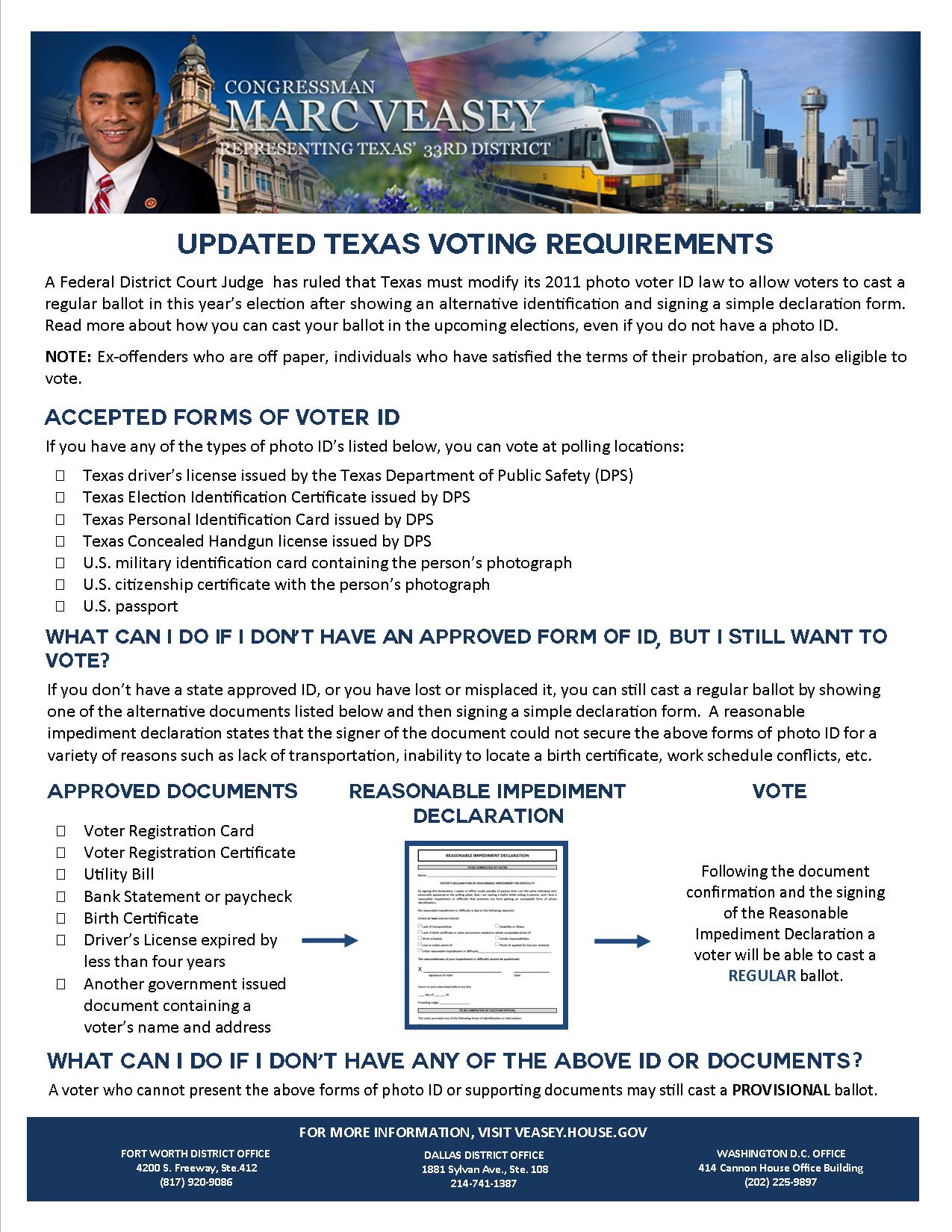Newsroom
Five new members will join the board of trustees at Texas Wesleyan University, including Rep. Kay Granger (R-Fort Worth) and Rep. Marc Veasey (D-Fort Worth), both graduates of the Fort Worth institution.
Veasey graduated from Texas Wesleyan in 1995 and is the sophomore representative for Texas' 33rd Congressional District. Elected in 2012, Veasey serves on the House Armed Services Committee, and the Committee on Science, Space and Technology.
Fort Worth, TX – Today, Congressman Marc Veasey, TX-33, joined the fight to end hunger as he worked with Community Food Bank volunteers to prepare and distribute nutritious food to hundreds of North Texas families. Veasey spent the morning learning about the hard work that staff and volunteers perform on a regular basis to ensure that DFW residents can access the nutritional resources they need no matter their financial situation. Rep.
Fort Worth, TX – Today, Congressman Marc Veasey, TX-33, donned a white lab coat at the Fort Worth-based global headquarters of Alcon, where he joined the assembly line to produce surgical packs for ophthalmologists worldwide and prepared eye care products for global distribution. Under the guidance of supervisors Patrick Collier and Heath Dial, Rep. Veasey learned firsthand the hard work and attention to detail necessary to produce quality American made eye care products for international distribution.
The number of General Aviation Caucus members in the U.S. House and Senate is approaching all-time highs.
[…]
He pointed out that after the mid-term elections last November, the number of caucus members in the House of Representatives stood at 221. Republican Rep. Sam Graves (R-6-MO), who co-chairs the House GA Caucus along with Democratic Rep. Marc Veasey (D-33-TX), has set a goal of 300 members.
WASHINGTON–Rep. Sheila Jackson Lee, D-Houston, wants to give Congress' highest civilian honor to President Lyndon B. Johnson.
[…]
So far, 13 representatives have co-sponsored the bill. They're all Democrats, most are members of the Congressional Black Caucus, and three are Texans: Reps. Marc Veasey of Fort Worth, Ruben Hinojosa of Mercedes and Henry Cuellar of Laredo.


